Batman: The Dark Knight (part 2)
Zhang Sanjian 2022-04-05 12:00
Joker is pure in his intent. He doesn’t commit crimes for money or fame, but solely for the sake of crime itself. He does not feel fear nor does he fear death. He delights in seeing the collapse of those with a seemingly righteous image and the destruction of their false beliefs. He acts like a catalyst for the city, infinitely magnifying all its sins and expanding the evil in everyone’s heart
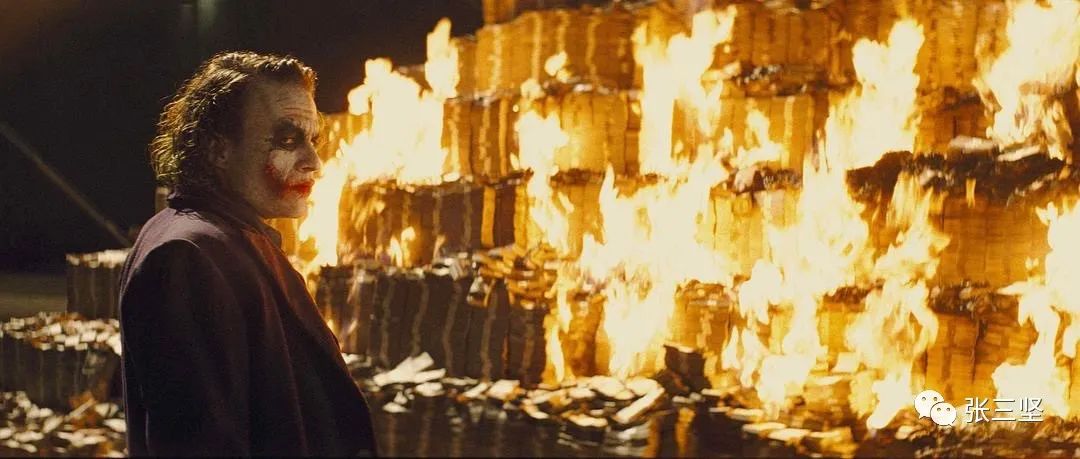 He wants Batman to break his rule; he wants Batman to lose his sanity and kill him, thus dragging Batman into the abyss. That’s why we see Joker sticking his head out of the window of a siren-blaring police car, letting the wind freely whip through his green-streaked hair.
He wants Batman to break his rule; he wants Batman to lose his sanity and kill him, thus dragging Batman into the abyss. That’s why we see Joker sticking his head out of the window of a siren-blaring police car, letting the wind freely whip through his green-streaked hair.
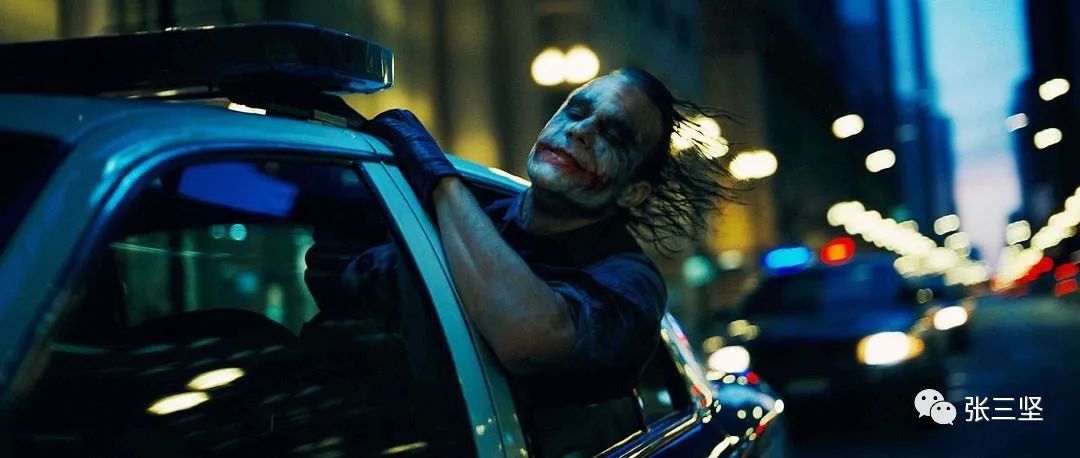 As we read Rachel’s letter, do we doubt Harvey’s earlier statement that dawn is coming? Or is the city eternally plunged into darkness?
As we read Rachel’s letter, do we doubt Harvey’s earlier statement that dawn is coming? Or is the city eternally plunged into darkness?
Joker tells Batman, ‘We’re alike, we’re both monsters,’ because they are both pure. Joker poses a dilemma for Batman: on one side is the people’s hero Harvey, and on the other, his own love, Rachel. Who should he save? Batman chooses Harvey, leaving the rescue of Rachel to the police commissioner.
Joker’s plan results in Harvey’s face being burned on one side, mirroring Harvey’s habit of making decisions with a coin flip – good or evil? Life or death? Light or darkness?
Rachel’s death also sets the stage for Harvey’s subsequent ‘darkening.’ At the same time, Rachel’s last words strengthen Batman’s resolve. After the death of the woman he deeply loved, didn’t Batman hesitate, wander, despair? Did he not question whether the ‘justice’ he stood for was truly right?
The last sentence of the letter, ‘Maybe you’ve lost trust in me. But please, don’t lose trust in others,’ I believe, is what pulled Batman back from the brink of the abyss. Perhaps this is the power of love.
The brilliant dialogue between Joker and Harvey in the hospital is a highlight. Joker describes everyone around Harvey as schemers, attributing Rachel’s death to their machinations. Thus, he aims to plunge society into anarchy, overturn the existing system, and plunge everything into chaos… He becomes an agent of chaos and tells Harvey that chaos is true fairness. Rachel’s death transforms Harvey into someone who, like Joker, breaks the rules of justice.
After becoming the ‘King of Crime,’ Joker initiates another game. If Coleman Reese is still alive within an hour, he threatens to blow up a hospital.
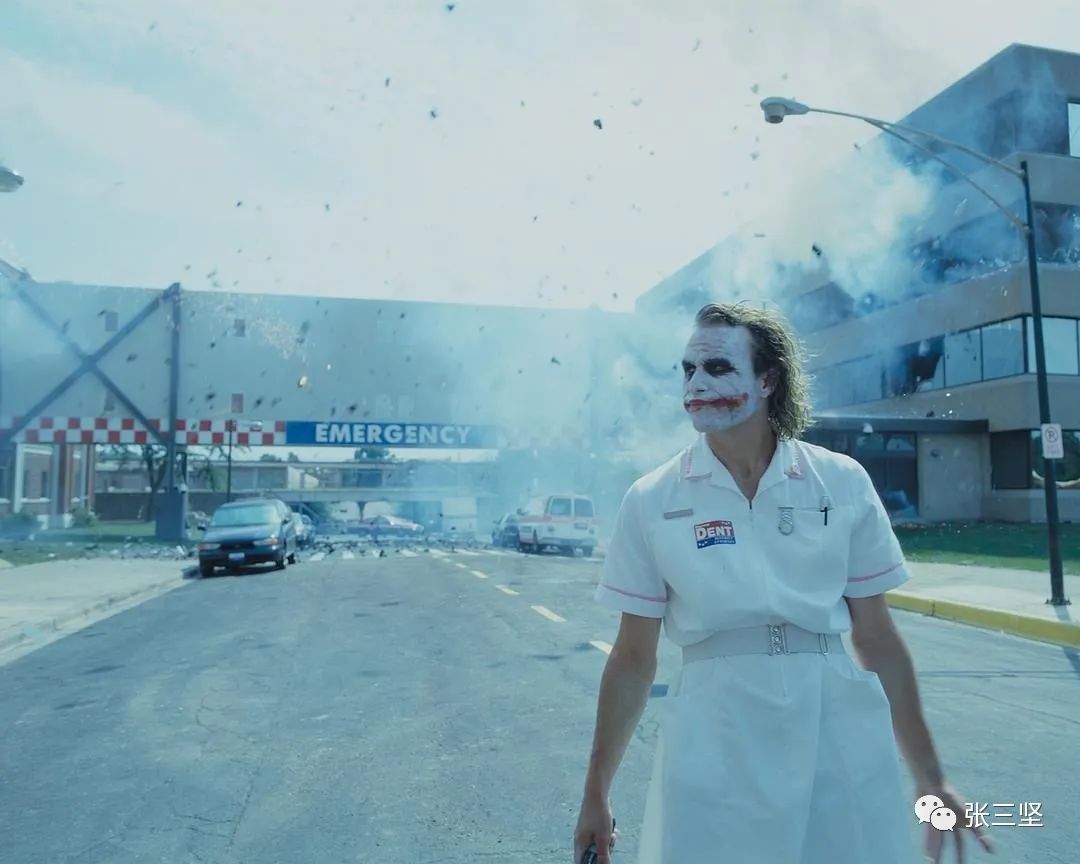 This reminds me of a story I read in the book ‘Justice,’ about whether to kill one sailor to save the lives of five others. What would people do? Kill one person to save the lives of those in a hospital, what would they do then? Joker’s actions provoke us to reflect on morality and justice.
This reminds me of a story I read in the book ‘Justice,’ about whether to kill one sailor to save the lives of five others. What would people do? Kill one person to save the lives of those in a hospital, what would they do then? Joker’s actions provoke us to reflect on morality and justice.
In the film, we see many relatives in the hospital attempting to kill Coleman Reese. Are they wrong? Shouldn’t the root of evil be attributed to the one who creates chaos?
An anecdote worth mentioning is the filming of Joker blowing up the hospital. As he walked out of the hospital, the explosion was supposed to continue, but it suddenly stopped. This unexpected situation was different from the rehearsal, but Joker didn’t stop his performance. Instead, after a moment of thought, he began to bang on the remote control, leading to the continuation of the explosion. The director didn’t call ‘cut,’ and the camera kept rolling, capturing this brilliant moment. (It’s worth noting that the cost of such a large-scale explosion scene is very high.)
A fantastic performance not only provides a great audio-visual experience for the audience but also saves costs for the production team. Many amazing performances originate from such unforeseen circumstances.
Up to this point in the film, there’s not a single dull moment. The screenwriter and director are incredibly skilled, always pushing the story to new climaxes just when you think it’s about to end.
The film reaches its fourth and greatest dilemma, a terrifying game involving the entire city’s populace.
Joker forces the people of Gotham to escape the city by boat. When civilians and criminals are gathered on two separate vessels, the Joker announces the rules: each boat has a bomb and a detonator. To save their own passengers, one boat must detonate the bomb on the other within an hour.
This game propels the entire film to its highest climax. Can good overcome evil? Are the criminals more virtuous, or are the civilians?
Joker relentlessly drives the situation towards what he wants to see. However, a black prisoner grabs the detonator and throws it out the window, saying, ‘I did what you guys couldn’t do in ten minutes.’
Thanks to the director. Instead of letting the voice of justice and kindness in our hearts dissipate, he gave us even stronger power, making us believe in the inherent goodness of human nature. Even the most heinous criminals can harbor kindness in their hearts.
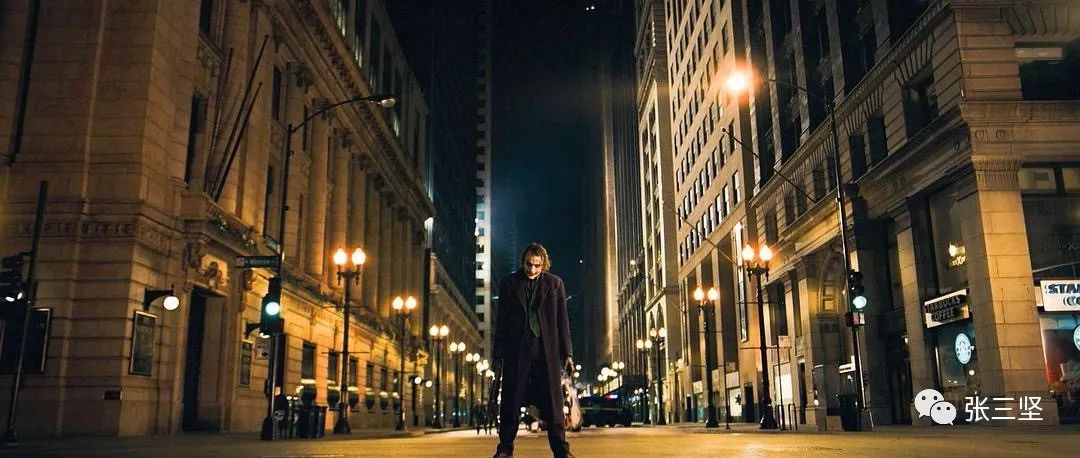 Joker calls others schemers, but in reality, he is the mastermind behind all the evil deeds. ‘Schemers trying to control their little worlds,’ and isn’t Joker the biggest schemer of all? He looks down on other schemers’ petty schemes, focused on their selfish gains, yet he plays with people’s hearts masterfully.
Joker calls others schemers, but in reality, he is the mastermind behind all the evil deeds. ‘Schemers trying to control their little worlds,’ and isn’t Joker the biggest schemer of all? He looks down on other schemers’ petty schemes, focused on their selfish gains, yet he plays with people’s hearts masterfully.
Batman has to prevent the police from opening fire while also rescuing hostages. In a twist, Joker makes the criminals pose as good people and dresses the hostages in the guise of evil, making it difficult for the police to distinguish friends from foes. ‘It’s not the fake bad people posing as good ones that you should fear, but the fake good people posing as bad ones.’
The final shot of the film focuses on Harvey, once the city’s beacon of hope. I want to ask everyone a question: Is flipping a coin to make decisions really fair?
Can such a simplistic method represent justice? Our civilized society exists because people continuously progress and reflect, making society more robust, not resorting to such basic methods.
Even with a coin, doesn’t it depend on one’s skill and practice to always land heads or tails? Harvey, who believed most in justice, is often the one most susceptible to falling into an abyss. (In the end, Batman didn’t kill Joker but instead saved him.)
‘…a fistfight with you at the risk of failure? You failed. You need an ace in the hole. Mine’s Harvey. I took Gotham’s white knight and brought him down to our level. It wasn’t hard to see, as you know. Madness, as you know, is like gravity. All it takes is a little push.’
It reminds me of the lyric, ‘Who says only those standing in the light can be heroes.’
Batman says, ‘I am not a hero,’ but he stands in the darkness bringing light. If the righteous cannot do it, let me do it instead. Let me, the embodiment of the night, do it for them.
‘Because he’s not our hero. He’s a silent guardian, a watchful protector, a Dark Knight.’
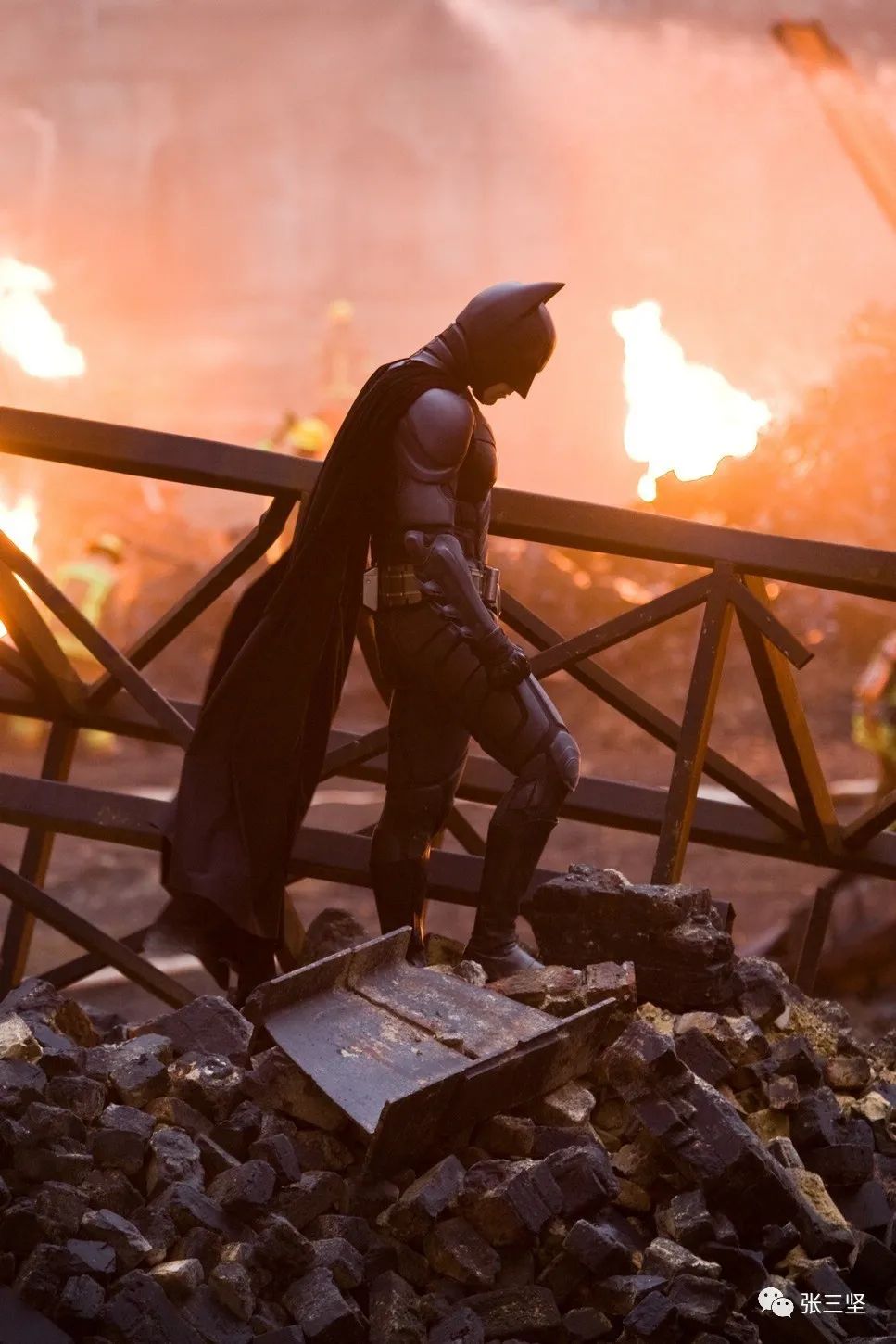
Batman’s loyal butler said, ‘Everyone believes that Batman stands for something more important than the whims of a terrorist. Even if everyone hates him for it. That’s the sacrifice he’s making. He’s not being a hero. He’s being something more.’
Let me be the Dark Knight in your hearts.
Find your voice. Find yourself.
The true strength of a society is not reflected in the blind worship of the powerful, but in the compassion and protection of the weak.
Together, let us use the life force that transcends time to spread love, unleash kindness, and achieve the greatest freedom and strength.


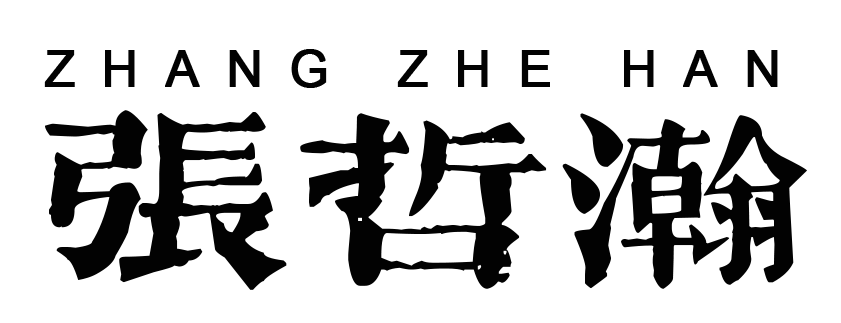
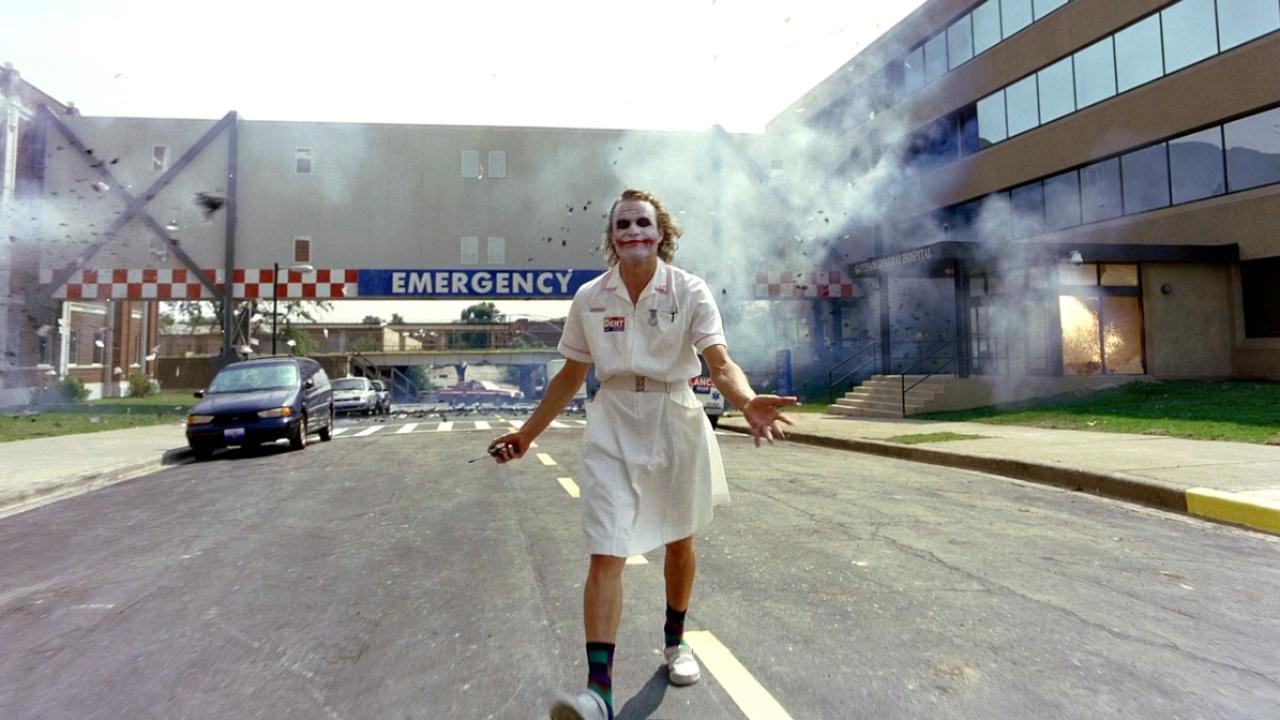


I will always be your crew and sail with you.
翻译 Translate
You are the peach blossom source of my soul, the enlightening lamp for my progress, and the magical doctor who cures my anxiety and heartache.
翻译 Translate
So I’ve always been grateful to you.
翻译 Translate
Thank you for being the Dark Knight of our hearts. It’s not easy. After all, you are scarred yourself.
翻译 Translate
Hi~~~ my dark knight. Find me Find your voice 🥰
翻译 Translate
Sometimes I don’t want to ponder why a good and kind person can only become a dark knight, facing the tragic fate of a hero.
翻译 Translate